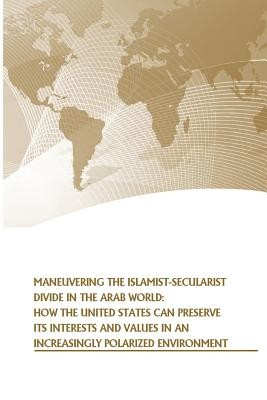
- We will send in 10–14 business days.
- Author: Strategic Studies Institute
- Publisher: CreateSpace Independent Publishing Platform
- Year: 2014
- Pages: 64
- ISBN-10: 150561046X
- ISBN-13: 9781505610468
- Format: 15.2 x 22.9 x 0.3 cm, minkšti viršeliai
- Language: English
- SAVE -10% with code: EXTRA
Maneuvering the Islamist-Secularist Divide in the Arab World (e-book) (used book) | bookbook.eu
Reviews
Description
Mr. Gregory Aftandilian examines why the Islamist-secularist divide in such Arab countries as Egypt and Tunisia has become so intense and polarizing and what can be done, from the perspective of U.S. policy, to mitigate such divisions and preserve U.S. interests and values. He demonstrates that having Islamist parties in dominant positions in Arab societies often provokes a backlash from secular elements because the latter see the Islamists as threatening their social freedoms, which leads to unrest. For countries beginning the transitory process from authoritarianism to democracy, Aftandilian recommends that the United States press for a broad governing coalition and a delay in holding elections, similar to what took place in Italy and France toward the end of World War II and which aided the moderate parties. Such practices would allow secular-liberal forces the opportunity to build their political parties and compete with Islamist parties. For Arab countries already facing polarization, the United States should be consistent on human rights, help build up institutions (such as parliaments) as a hedge against authoritarian presidents, and press for inclusionary politics. Aftandilian argues that U.S. assistance should be used as a positive re-enforcer-to reward moderate and inclusionary politics-rather than as a punitive lever (cutting aid) because the latter often provokes a backlash against the United States. In addition, Aftandilian recommends that U.S. Army officers should reinforce to their Arab military counterparts the value and necessity of concentrating on genuine external and internal terrorist threats as opposed to using a coercive internal force that favors exclusionary politics.
EXTRA 10 % discount with code: EXTRA
The promotion ends in 22d.08:16:40
The discount code is valid when purchasing from 10 €. Discounts do not stack.
- Author: Strategic Studies Institute
- Publisher: CreateSpace Independent Publishing Platform
- Year: 2014
- Pages: 64
- ISBN-10: 150561046X
- ISBN-13: 9781505610468
- Format: 15.2 x 22.9 x 0.3 cm, minkšti viršeliai
- Language: English English
Mr. Gregory Aftandilian examines why the Islamist-secularist divide in such Arab countries as Egypt and Tunisia has become so intense and polarizing and what can be done, from the perspective of U.S. policy, to mitigate such divisions and preserve U.S. interests and values. He demonstrates that having Islamist parties in dominant positions in Arab societies often provokes a backlash from secular elements because the latter see the Islamists as threatening their social freedoms, which leads to unrest. For countries beginning the transitory process from authoritarianism to democracy, Aftandilian recommends that the United States press for a broad governing coalition and a delay in holding elections, similar to what took place in Italy and France toward the end of World War II and which aided the moderate parties. Such practices would allow secular-liberal forces the opportunity to build their political parties and compete with Islamist parties. For Arab countries already facing polarization, the United States should be consistent on human rights, help build up institutions (such as parliaments) as a hedge against authoritarian presidents, and press for inclusionary politics. Aftandilian argues that U.S. assistance should be used as a positive re-enforcer-to reward moderate and inclusionary politics-rather than as a punitive lever (cutting aid) because the latter often provokes a backlash against the United States. In addition, Aftandilian recommends that U.S. Army officers should reinforce to their Arab military counterparts the value and necessity of concentrating on genuine external and internal terrorist threats as opposed to using a coercive internal force that favors exclusionary politics.


Reviews